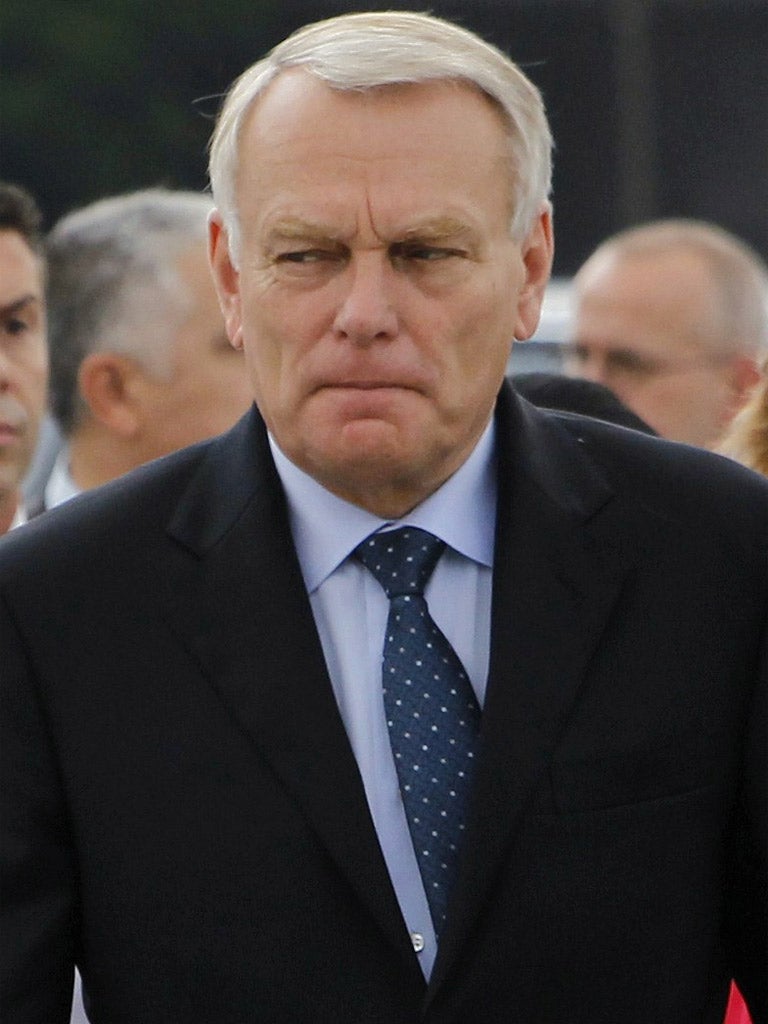Attack on the 35-hour week may mean French PM not working at all
Jean-Marc Ayrault plunges government into crisis by challenging Socialist article of faith

To his dismay, President François Hollande has already succeeded in returning French government to "normality".
The curse which once made the Prime Minister's office the most thankless job in French politics has returned to haunt Mr Hollande's choice for the post, Jean-Marc Ayrault.
After five accident-prone months, Mr Ayrault plunged into a self-made crisis this week by inadvertently questioning an article of his own Socialist party's faith – the 35-hour working week. In an interview with newspaper readers, designed to repair his reputation for being muddled and out-of-touch, the Prime Minister said a return to a 39-hour week was "not a taboo subject".
He was corrected by his own ministerial colleagues and forced to put out a statement admitting he had misspoken. Unfortunately, Mr Ayrault, 62, misspoke again, appearing to say the 35-hour week, introduced by a Socialist government 12 years ago, was just one of "the many problems" with the economy.
Government sources suggest Mr Ayrault had been trying to appear like a reasonable and open-minded man. There was no question of repealing the 35-hour week, which remains broadly popular with both middle- and working-class voters.
President Hollande was reported to have reacted to the performance of his old friend with a "certain stupefaction". Opposition politicians were jubilant. Senior figures in the Socialist-Green coalition government said Mr Ayrault would survive but only because a prime minister could not be fired after five months.
French newspaper commentators suggested that Mr Ayrault might be on the "slippery slope" taken by Edith Cresson, who was dismissed as Prime Minister after 11 months in 1991-2 after a series of mishaps and misjudgements.
Since the Fifth Republic was created half a century ago, it has been the role of the prime minister to run day-to-day government and to take the blame for everything that goes wrong. President Nicolas Sarkozy reversed that by, in effect, running the government himself. His Prime Minister, François Fillon, remained popular while Mr Sarkozy's ratings plunged.
Mr Hollande, who promised to be a "normal" president, has gone back to the old pattern of allowing the prime minister to conduct day-to-day business. Mr Ayrault's popularity has plunged from just over 60 per cent in early June to the mid-40s.
However, President Hollande's ratings have also crashed. French voters are unhappy with what they see as a cumbersome and muddled response to a deepening economic crisis.
Supporters of Mr Ayrault admit he has taken time to assert his authority. He had previously held no government position. He was Mayor of Nantes in western France and leader of the Socialist opposition in the national assembly.
Mr Ayrault, who comes from a rural working-class background, did not attend the usual administrative finishing schools of the French elite. He is said to blame the divisions within his cabinet on the snobbery of some ministers who regard him as a provincial upstart.
Speculation is already rife about possible successors. An obvious candidate would be Martine Aubry, the former Socialist party leader and mother of the 35-hour week, who was pointedly overlooked by President Hollande in the spring.
A more likely candidate would be the Interior Minister, Manuel Valls – one of the few members of the Ayrault cabinet to rise in popularity.
Join our commenting forum
Join thought-provoking conversations, follow other Independent readers and see their replies
Comments
Bookmark popover
Removed from bookmarks